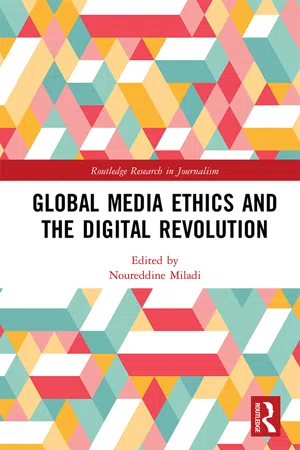Political correctness does not address the real problem faced by ethnic minorities, says head of the National Black Police Association … Andrew Gaye, an inspector with the Police Service of Northern Ireland told the Sunday Telegraph that this sensitivity may have gone ‘too far in some stages’ such as leaving people unable to call a black coffee black coffee. (Ridler, 2020)
I fear anyone who dissents from today’s pervasive culture of political correctness will be visited by the Thought Police … so how long until anyone who writes an article like this is dragged away in handcuffs. (Hitchens, 2020)
In 2017 Trevor Phillips, the first Chair of the Equality and Human Rights Commission, presented a documentary on British television entitled, ‘Has political correctness gone mad?’. This question is commonly asked and answered in the affirmative (as in Bond, 2018). I shall restrict myself here to two examples where this common refrain is evident: the lampooning of an analysis of a children’s book (Brown, 2019) and the response of a supermarket to a complaint (Young, 2019).
World’s gone PC mad … Snowflakes: Mr Clever is a sexist … Flakes have slammed ‘sexist’ Mr Men character Mr Clever for ‘mansplaining’ an iconic bridge to ‘stupid’ blonde Little Miss Curious. (Brown, 2019)
Waitrose has apologized for selling ‘racist’ chocolate Easter ducklings after it received complaints that the dark one was named ‘ugly’ … Many Twitter users have reacted angrily to the supermarket’s decision to remove the chocolate ducklings suggesting it has given in to excessive political correctness. PC gone mad … yet again one person wrote. (Young, 2019)
These two examples clearly ridicule and belittle political correctness but the invocation of the common refrain, PC gone mad also in a sense brings the positive and negative usages of the concept together. A narrative is constructed which suggests that at one stage PC was indeed progressive in promoting social justice for minorities but that it has gone too far so that now ‘people are becoming frightened of saying the wrong thing, using the wrong language about a pretty wide range of opinion’ (Parris, 2019). This view is widely shared: ‘The progressive movement, that has done so much to tackle inequality and unfairness, has been captured by ultras who demand absolute conformity with every article of their faith’ (Phillips, 2020a). Another journalist, further right on the political spectrum, concurs. The decline of religion and subsequently secular ideologies has left a vacuum which has been filled by social justice zealots. Failing to acknowledge the success of previous human rights campaigns in righting historical injustices relating to race, gender and sexuality, new theories emerged ‘to suggest that things had never been worse. Suddenly – after most of us had hope it had become a non-issue – everything seemed to have become about race’ (Murray, 2020: 6). A crusading desire to right perceived wrongs has entailed the creation of ‘a set of tripwires laid across the culture … What everyone does know are the things that people will be called if their foot ever nicks against these freshly laid tripwires. “Bigot”, “homophobe”, “sexist”, “mysognist”, “racist” and “transphobe” are just for starters’ (Murray, 2020: 7).
There is little doubt that political correctness now typically carries negative connotations. Few people consequently identify themselves as supportive of PC and when they do, they sound on the defensive (Johnson, 2017; Alibhai-Brown, 2018). More typically, those who are sympathetic to the causes associated with PC will studiously avoid defining themselves as advocates of PC. The same is also true of a related concept, ‘woke’ which, though initially coined to refer to awareness of racial injustice ‘has been weaponised, used in conservative media circles as an insult’ (Hunt, 2020; Hirsch, 2019). Two examples will suffice: ‘The woke left is the new Ministry of Truth … Good people are silenced in an Orwellian nightmare where a tyrannical minority decide what we’re allowed to say (Turner, 2020). And ‘The march of wokeism is an all-pervasive new oppression’ (Phillips, 2020b).
Both political correctness and woke are rarely defined. Instead they are used to depict the Other in a disparaging way and often to suggest that there are powerful forces suppressing inconvenient truths and steadily eroding our freedom. One journalist claims that ‘the thought police are spiraling out of control’ (Street-Porter, 2020), while another believes that we need to wake up before it’s too late: ‘We’ve become a timid, mute, fearful society in which everyone must walk on constant eggshells for fear that they will be next for the social media pile-on and politically correct execution’ (Morgan, 2020: 327). This characterization of PC and woke is highly influential and clearly resonates with many people. A 2018 YouGov poll found that nearly half the respondents believe that ‘“there are many important issues these days when people are simply not allowed to say what they think”, 13 points more than the 35 per cent who believe people are generally “free to discuss what they think”’. In addition, ‘by two to one – 67 per cent to 33 per cent – Britons believe “too many people are too easily offended these days over the language that others use” as against the view that care with language is needed “to avoid offending people with different backgrounds”’ (Clark, 2019). A 2020 CSS poll presents a broadly similar picture, with ‘six in ten’ agreeing ‘that political correctness gives “too much power to a small minority of people who like to take offence”’ and nearly eight in ten agreeing ‘that “you have to walk on eggshells when speaking about certain issues these days”’ and over eight in ten agreeing ‘that “too many people are easily offended these days”’ (Shipman, 2020). The media in short portray political correctness in a derogatory fashion and most people buy this picture.
